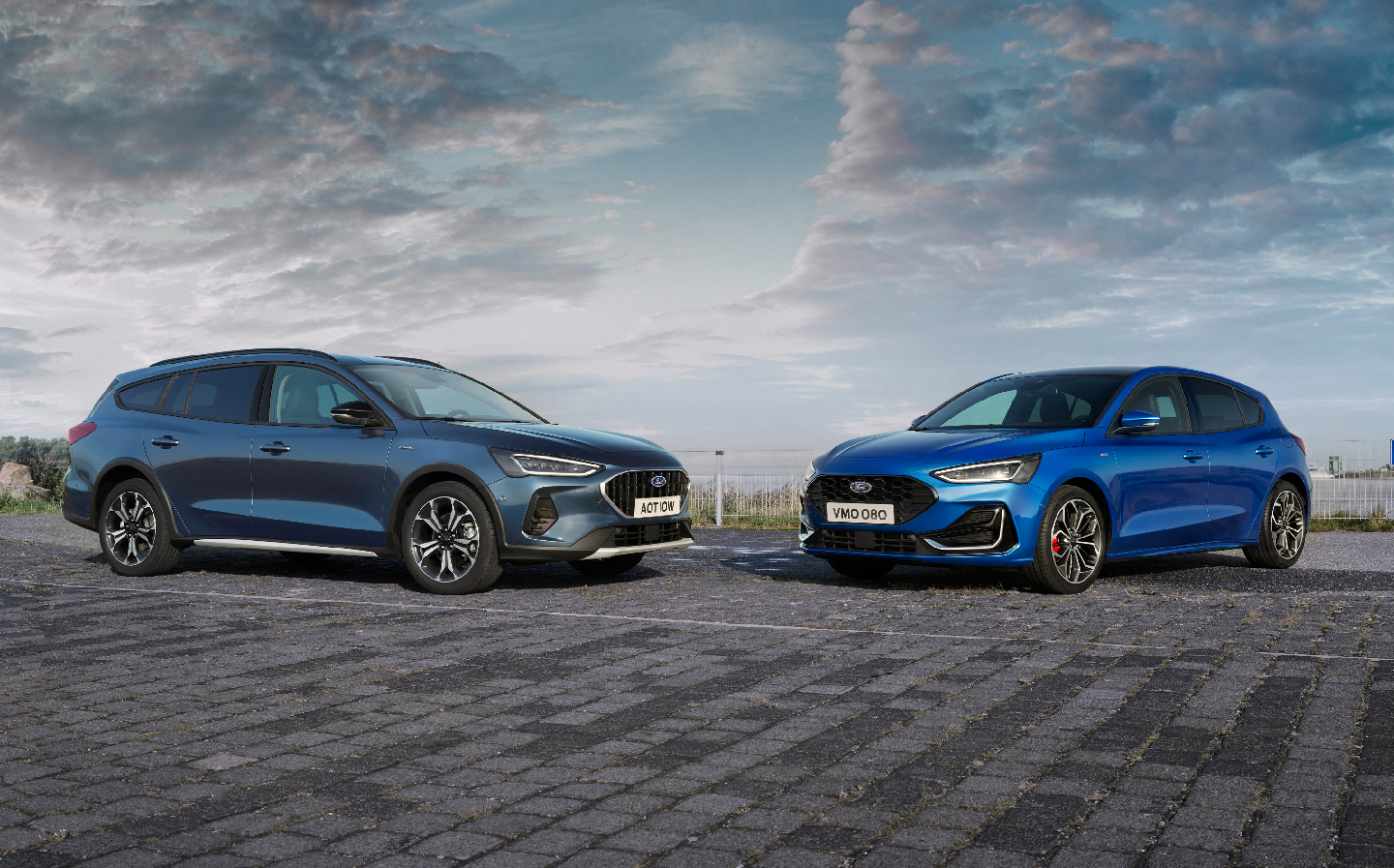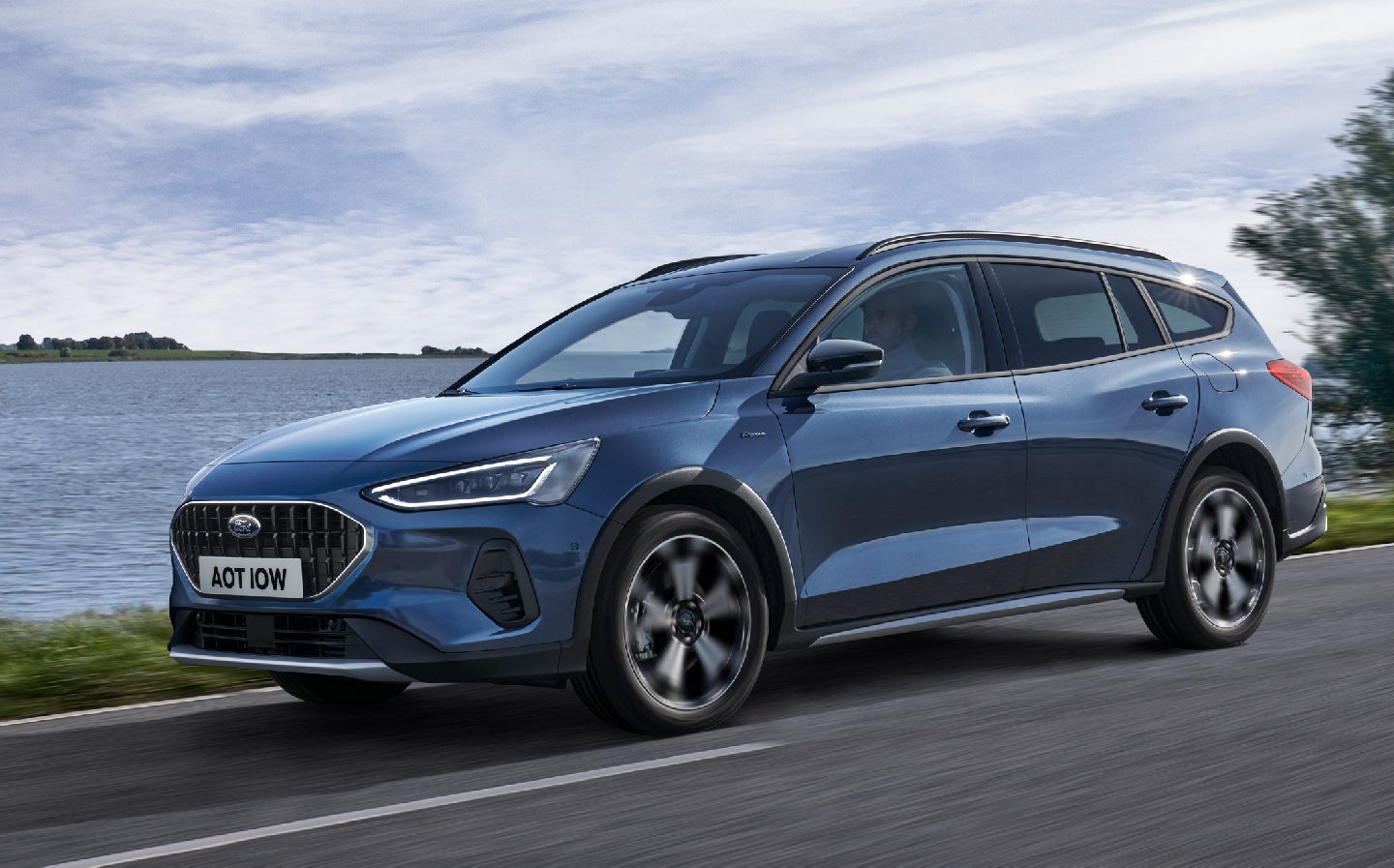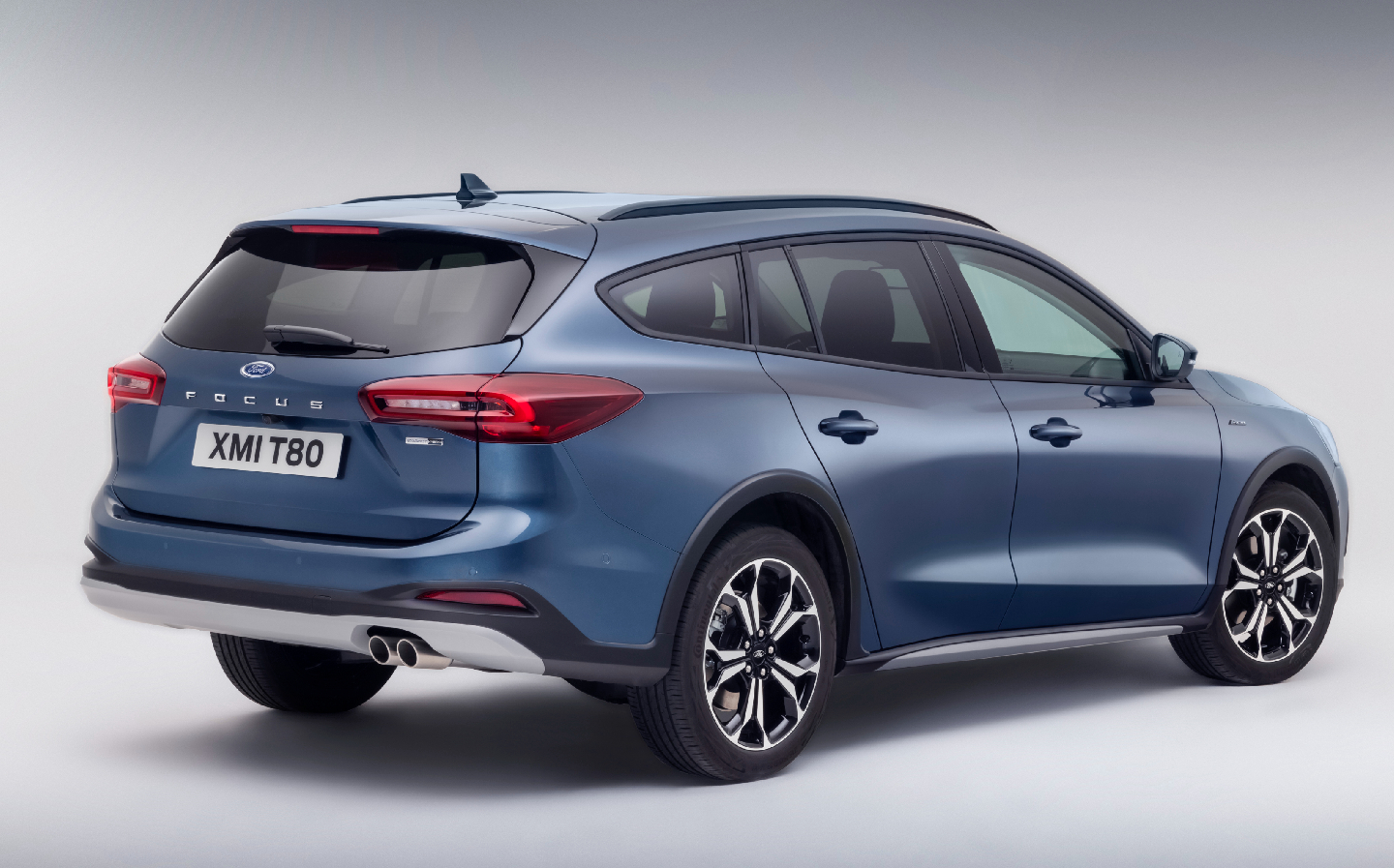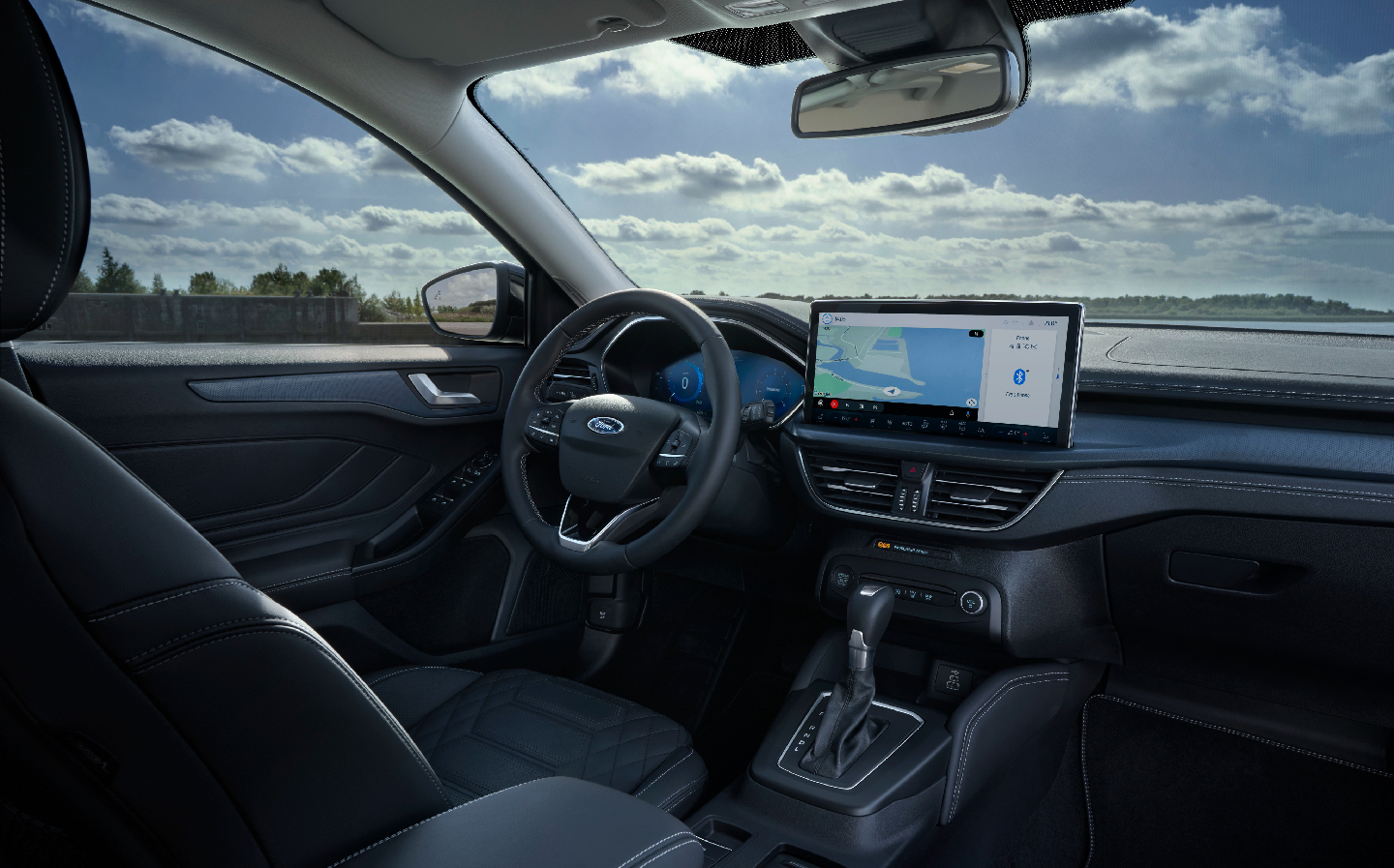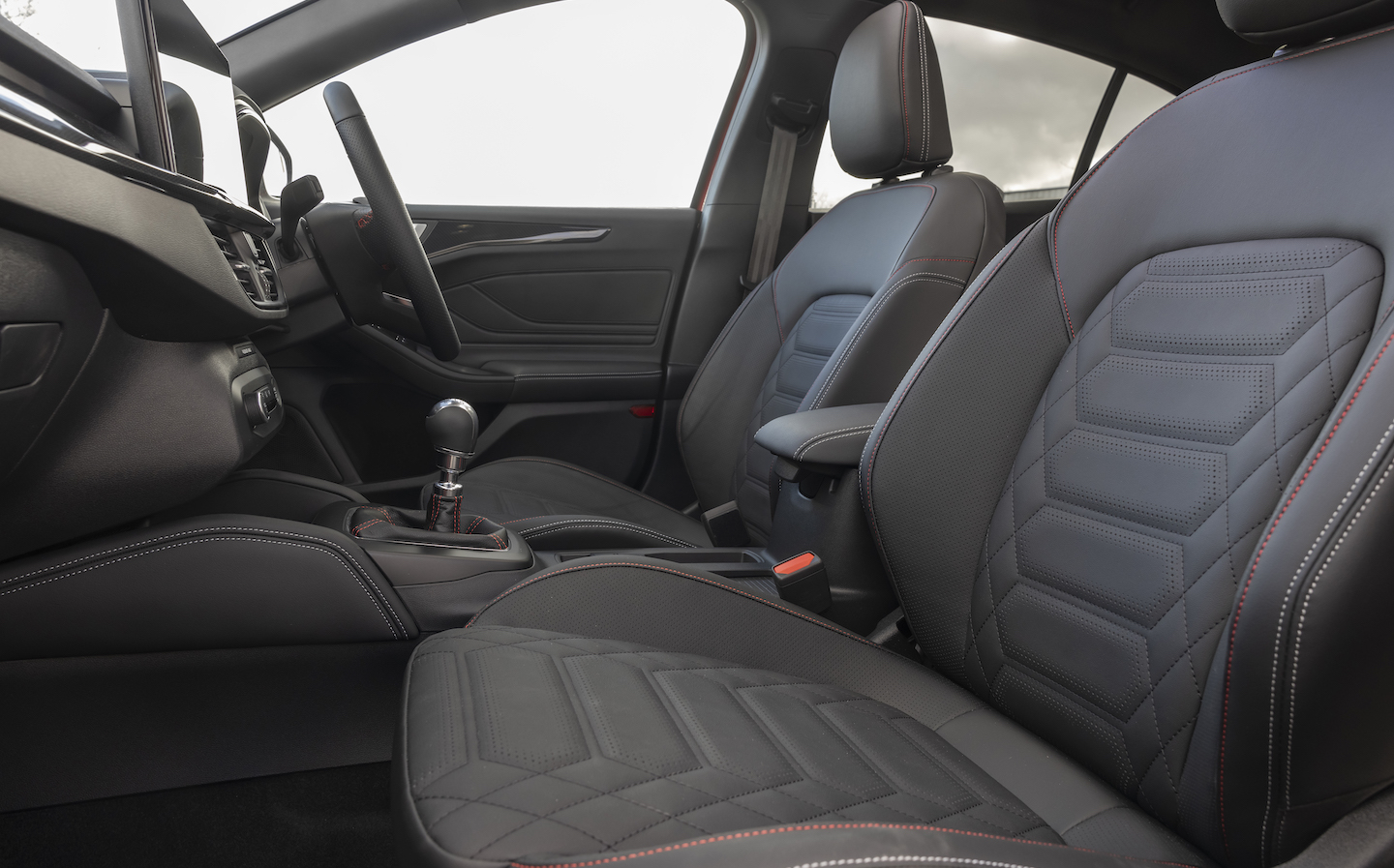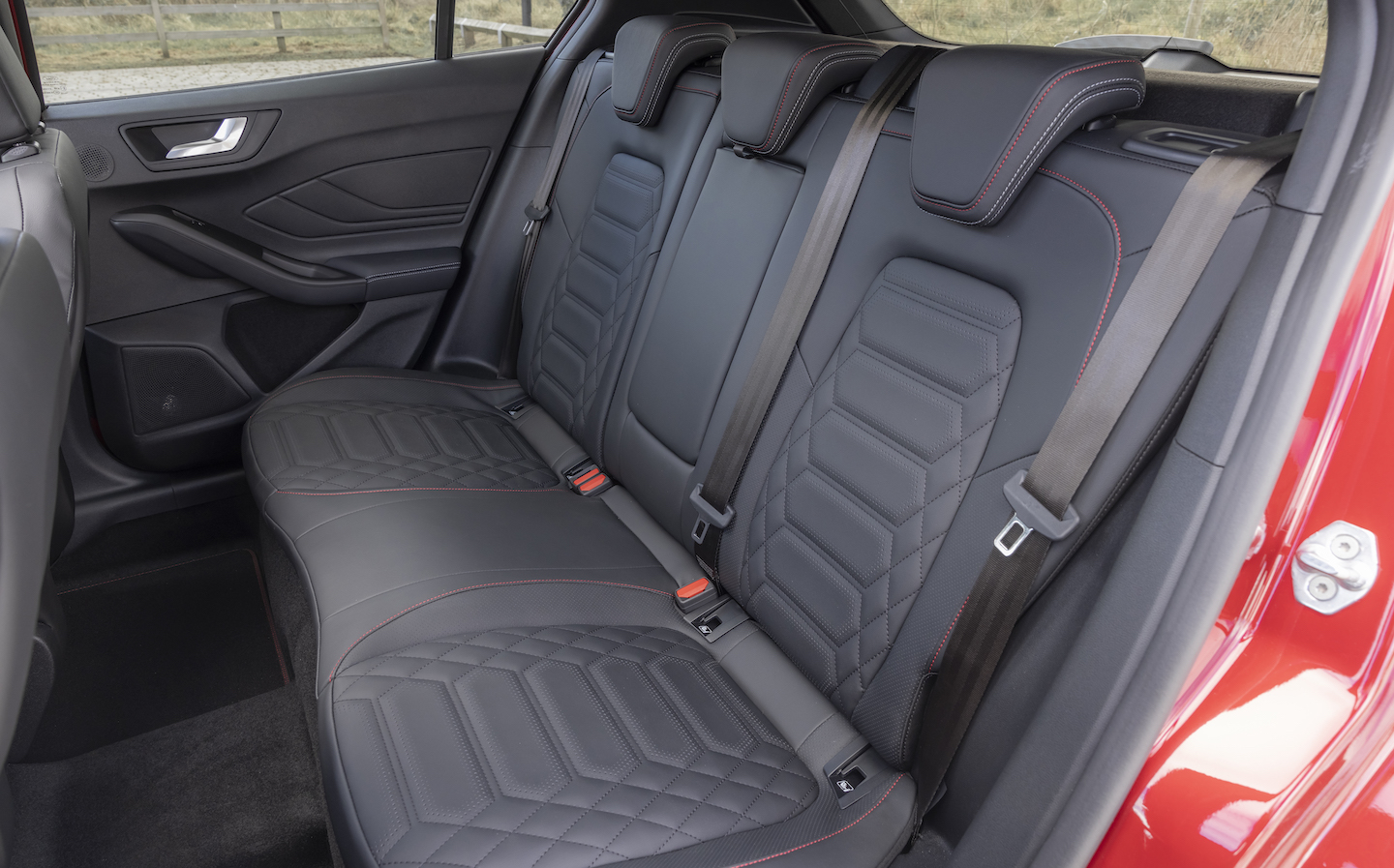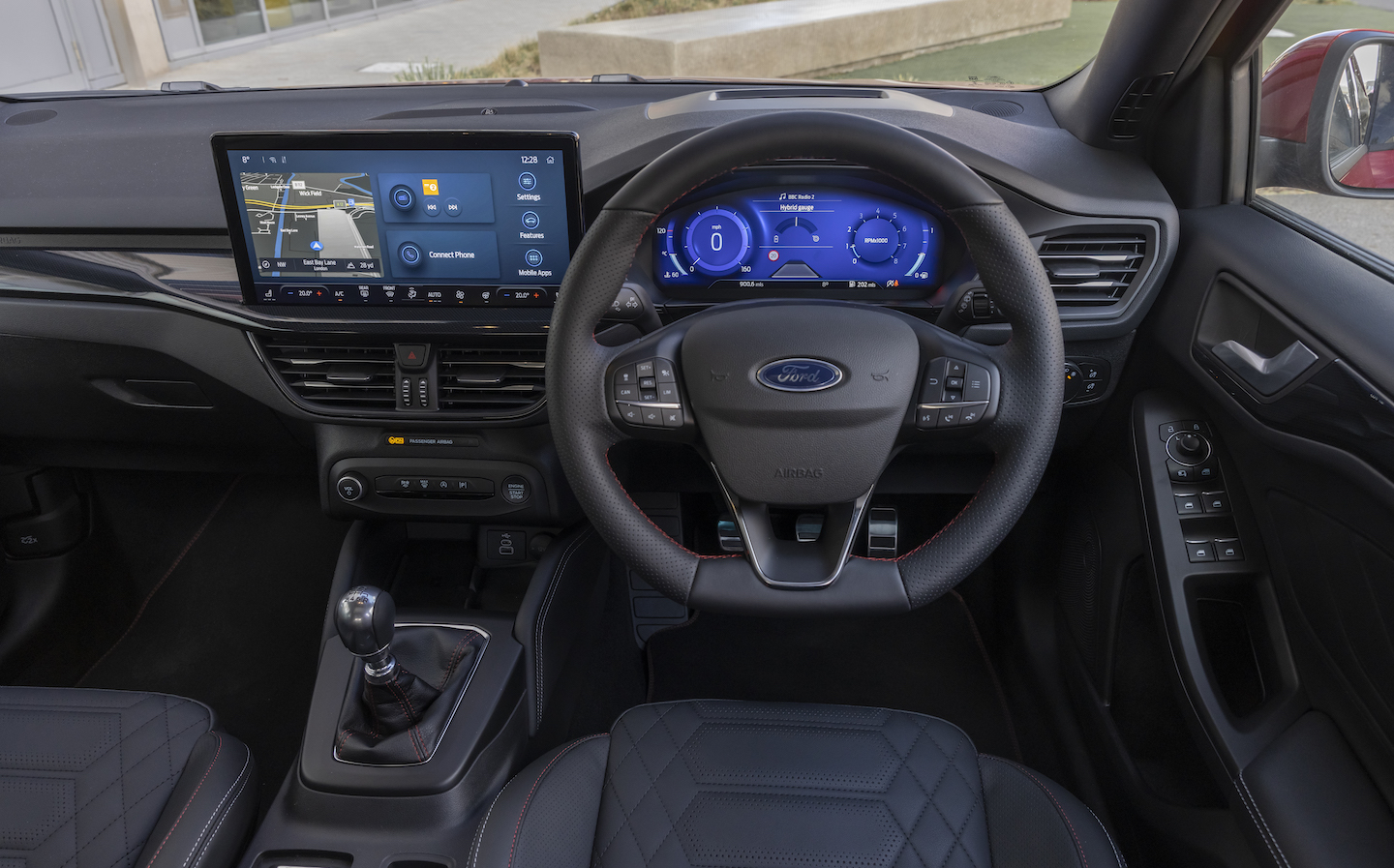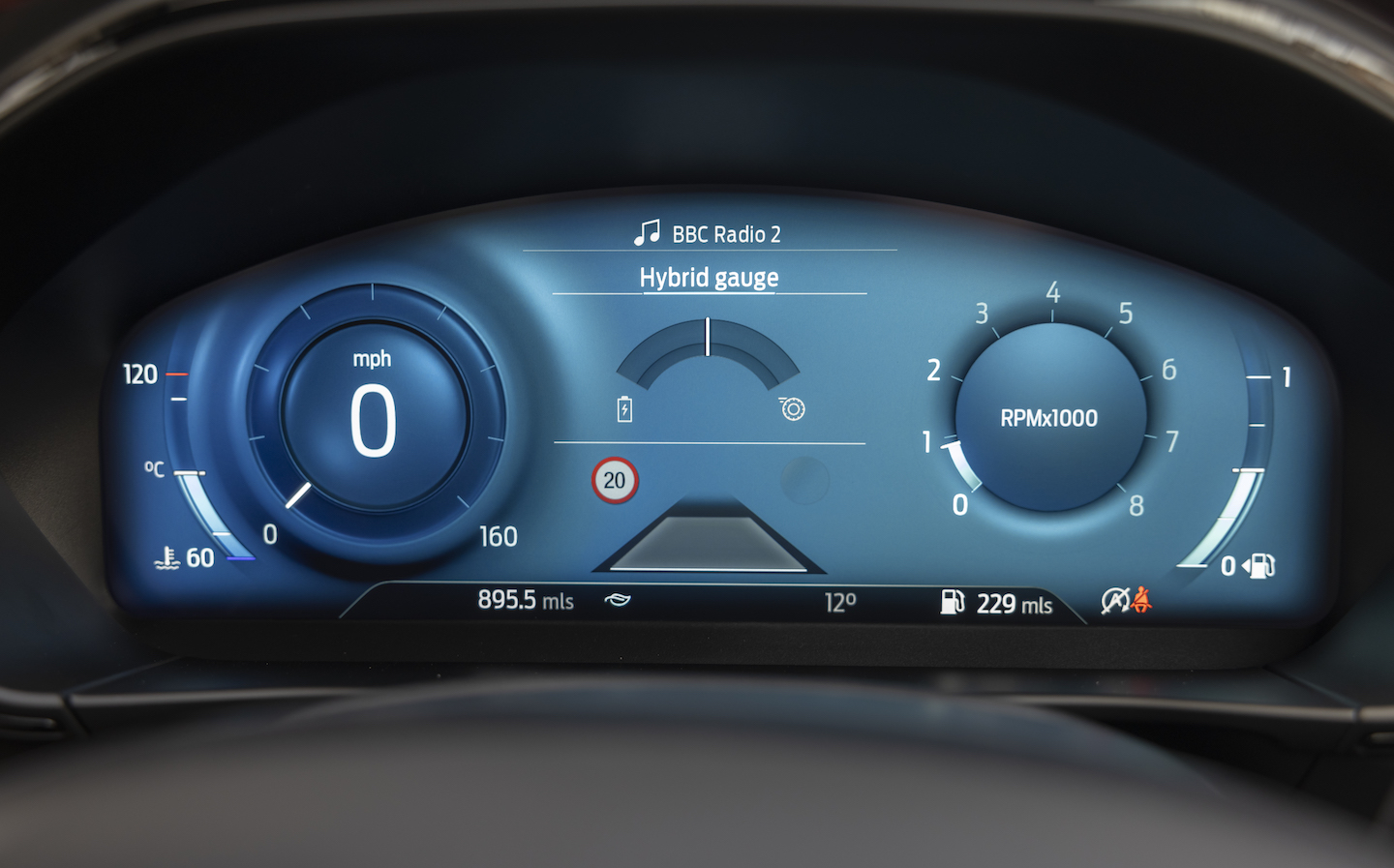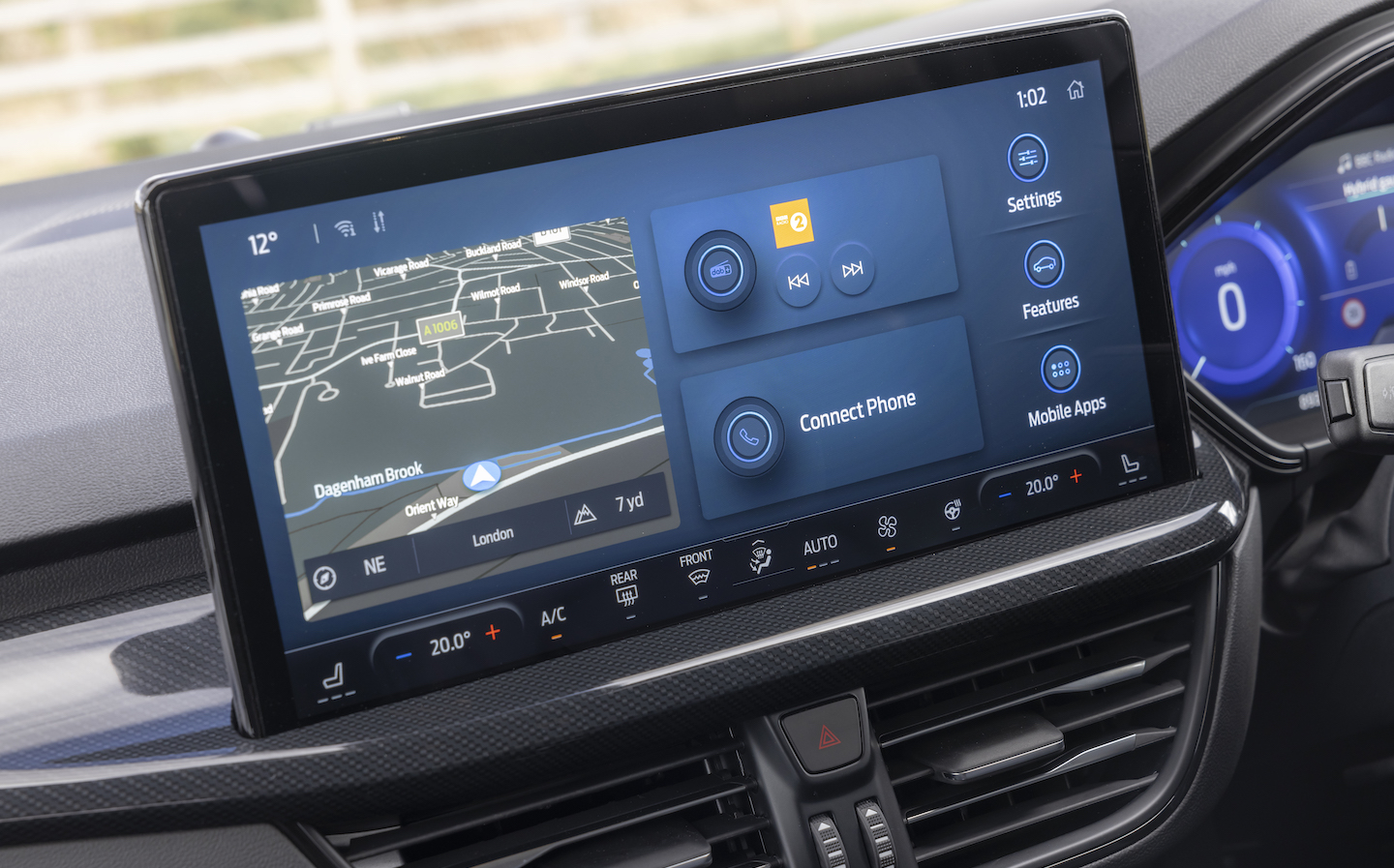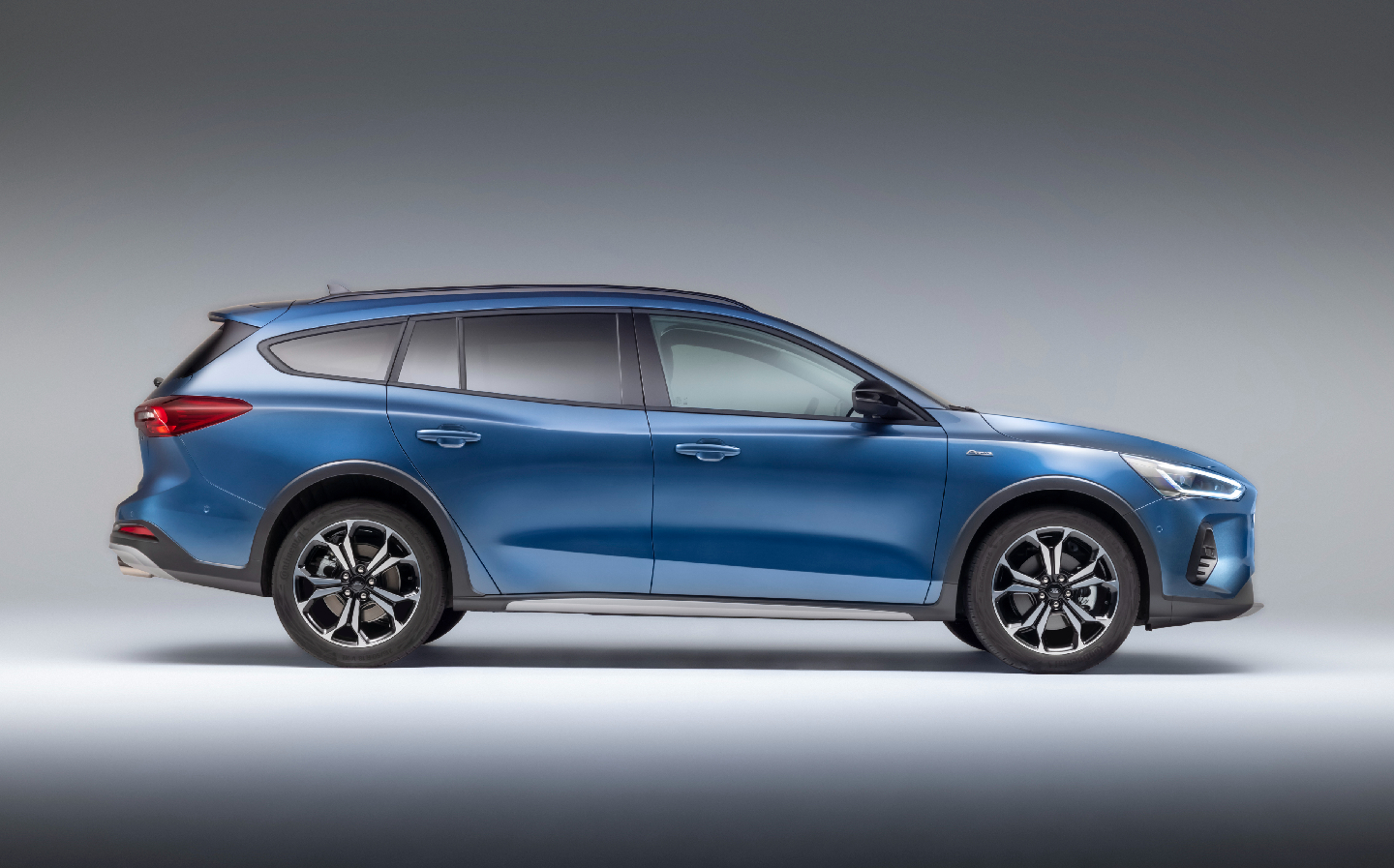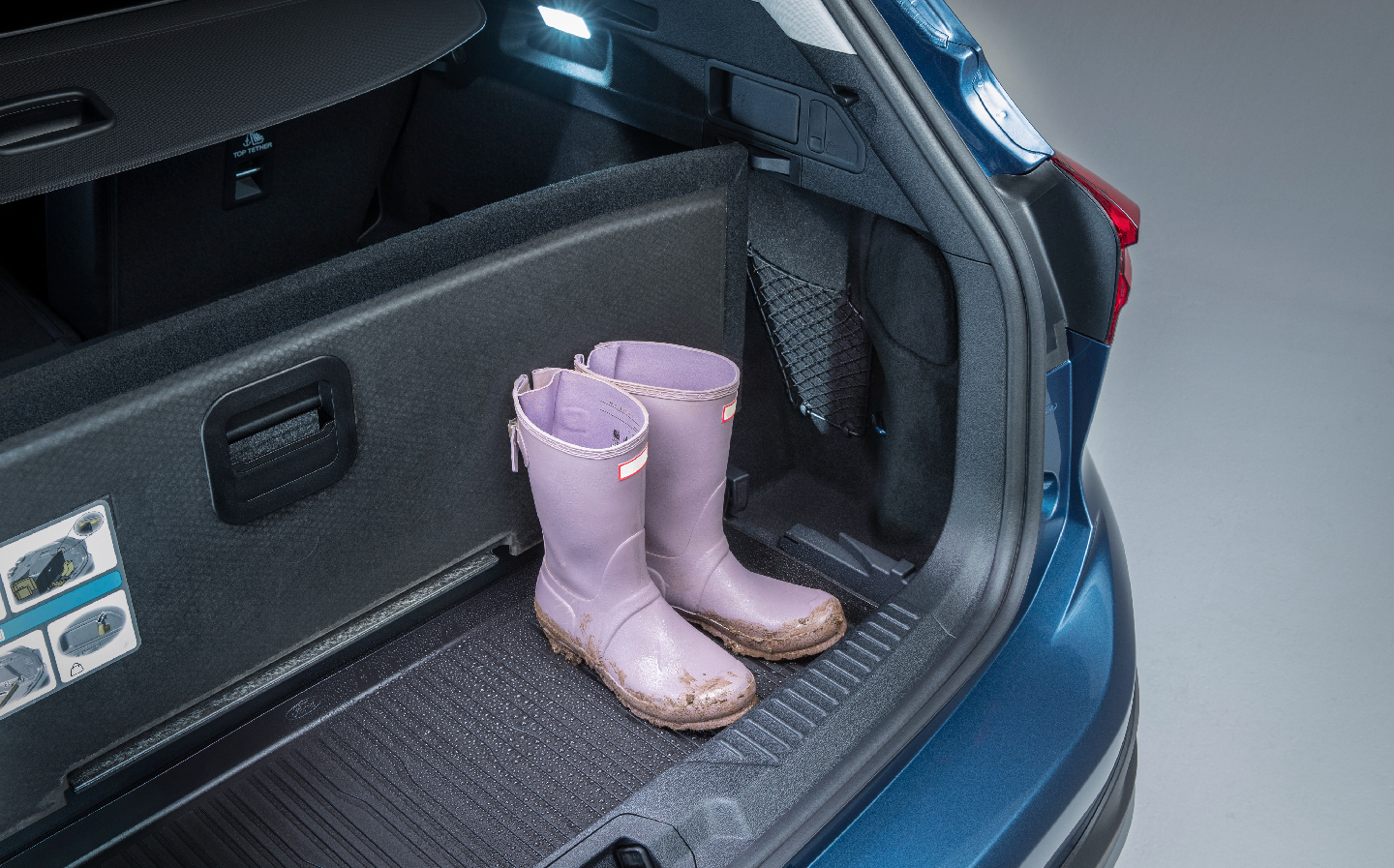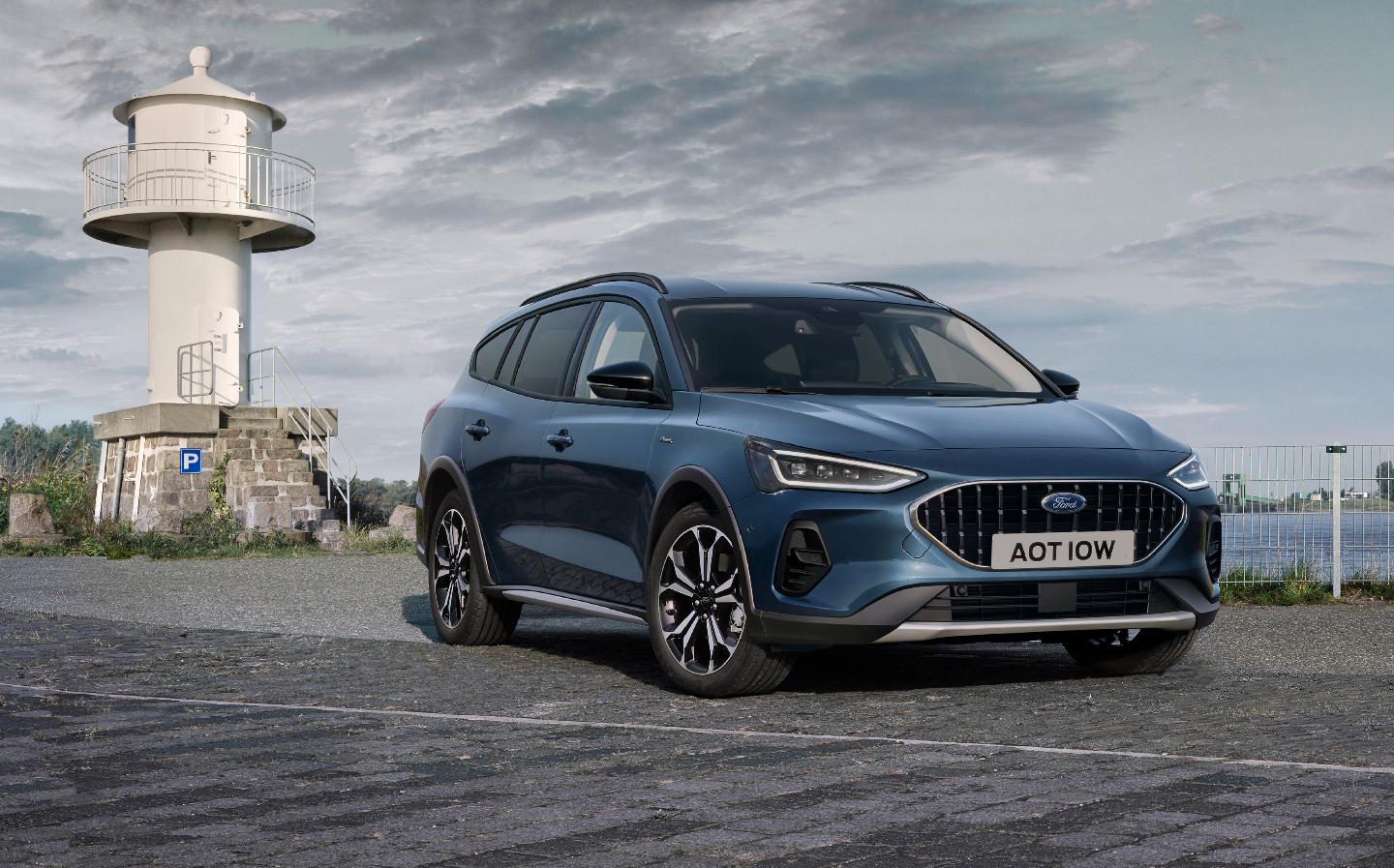Ford Focus 2022 review: Still good to drive but do we need the Active?
Customers will focus on the crossovers but this is still worth a look
The Ford Focus has long been one of the big players in the family car market, so despite much of the carmaker’s attention now shifting to crossovers such as the Puma and Kuga, the arrival of a new Focus is big news.
Kitted out with a more modern exterior design and some latest-generation interior tech, the new Focus promises more style than before while still providing the same enjoyable driving experience.
Traditionally, that final trait has not always been best demonstrated by the Active model we tested, with its raised ride height and chunky body cladding, but the features aside it is fundamentally the same as the regular hatchback. The engines, the cabin and the technology are all unchanged, and there’s nothing to choose between the two when it comes to practicality. And in theory it fills that gap between traditional hatch and more rugged crossover.
Regardless of the guise in which the Focus comes, this is one of the more important cars to be released this year. Thanks to the global chip shortage, the Focus isn’t selling as well as it once was – Ford has prioritised its more profitable models, mentioned above – but demand is still strong and the Focus has traditionally been one of the biggest players in one of the biggest parts of the new car market.
The question is, will it remain there?
Exterior design and rivals
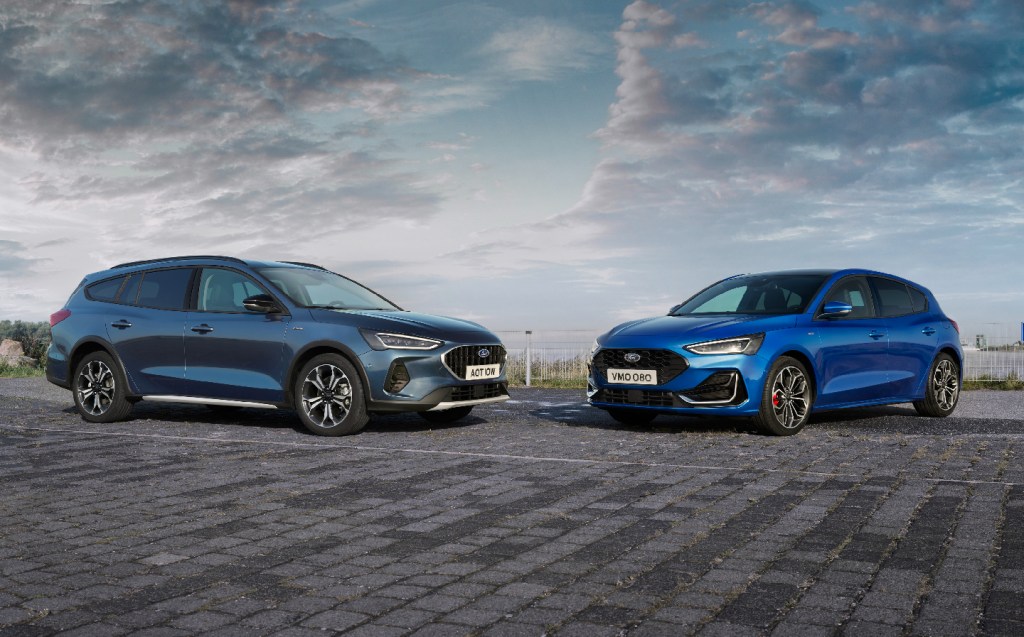
The new Focus has been revamped but the changes are relatively subtle. There’s a new grille, with the famous Ford oval now floating in the centre, while new headlights and bumpers have also been fitted. As styling updates go it’s hardly ground-breaking stuff, and we’re not entirely convinced that it’s an aesthetic improvement, but it does somehow make the car look more modern.
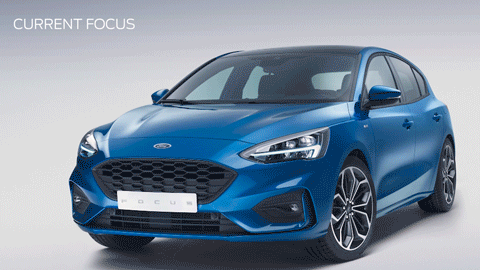
Despite the rise of crossovers and SUVs, family hatchbacks are still among the most popular cars on the road and familiarity appears to breed indifference, so it takes a lot to stand out in this competitive market. Next to the new Vauxhall Astra and Peugeot 308, the Ford looks a little bland, although we think it’s easier on the eye than its closest rival, the eighth generation Volkswagen Golf, which is now a couple of years old.
This Active model gets similar visual tweaks to its predecessor, adding some plastic body cladding and raising the ride height slightly. It’s an SUV-inspired design, and it adds a little bit of off-road ruggedness to the Focus – not that there are any mechanical upgrades to back that up.
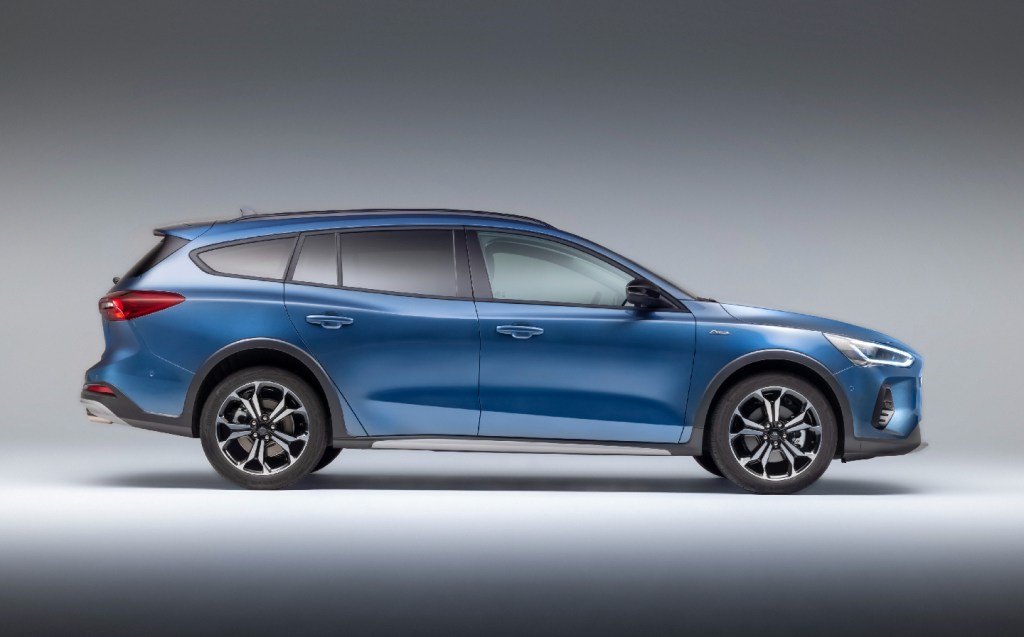
Customers seem largely savvy when it comes to this kind of posturing, because few lightly raised hatchbacks survive. There’s the Kia XCeed, the DS 4 Cross and the new Citroen C4, but that’s about it. You can also get a Volkswagen Golf AllTrack, but that comes with all-wheel drive as standard and it’s only available in estate form.
It’s hard to ignore that Audi recently decided to drop its A4 and A6 allroad models, which were rugged estates, due to slow sales. People would rather have an SUV, it seems.
Interior and practicality
Ford’s interiors have not been especially impressive in recent years, and the Focus’ cabin remains something of a mixed bag. The new oversize touchscreen appears to be master of all it surveys in there, but the design is generally quite futuristic and modern. It isn’t classically beautiful or a minimalist paradise, but it feels cool in a spaceshippy kind of way.
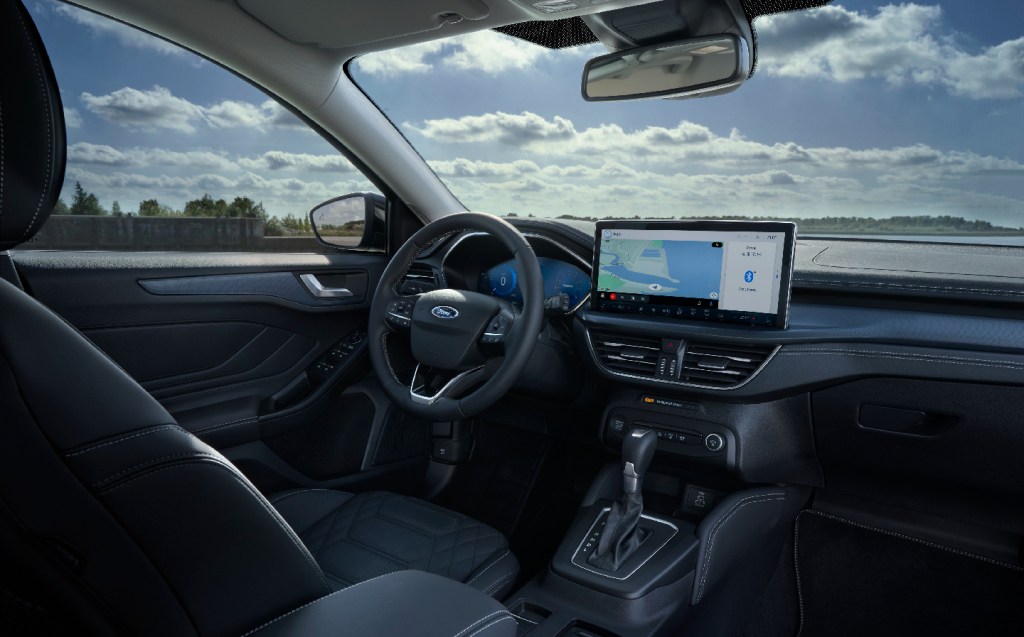
Build quality seems pretty good, too, with all the buttons and panels fitting together neatly, but material quality is occasionally questionable.
We’re used to car companies cutting costs by only putting tactile, soft-touch plastics in locations you regularly touch or use, but Ford appears to have done the opposite.
There’s some premium material on the top of the dashboard, for instance, but the plastic around the window switches, engine starter button and centre console feel a little cheap. Nevertheless, it’s robust and, unlike the high gloss piano black treatment in the Astra, won’t scratch or pick up fingerprints.
It’s reasonably spacious, too. The Focus has long been eclipsed by its arch rival, the VW Golf, when it comes to cabin and boot space, but this generation of Focus is much better than some of its predecessors.
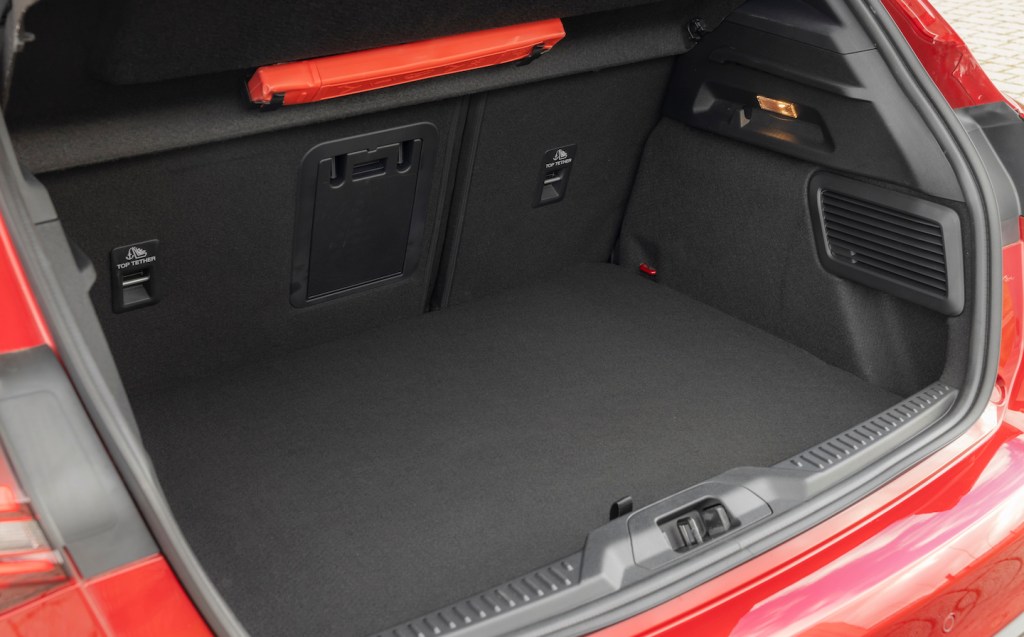
Admittedly, the 375-litre boot in the hatchback is fractionally smaller than that of the equivalent VW Golf, but given the difference is six litres – or three ice cream tubs, if you prefer that measure – there isn’t much between them. There’s no difference in capacity between the regular and Active models in terms of space, either in hatchback or estate forms, the latter of which can swallow 635 litres of luggage, or 1,653 litres when you fold the rear seats.
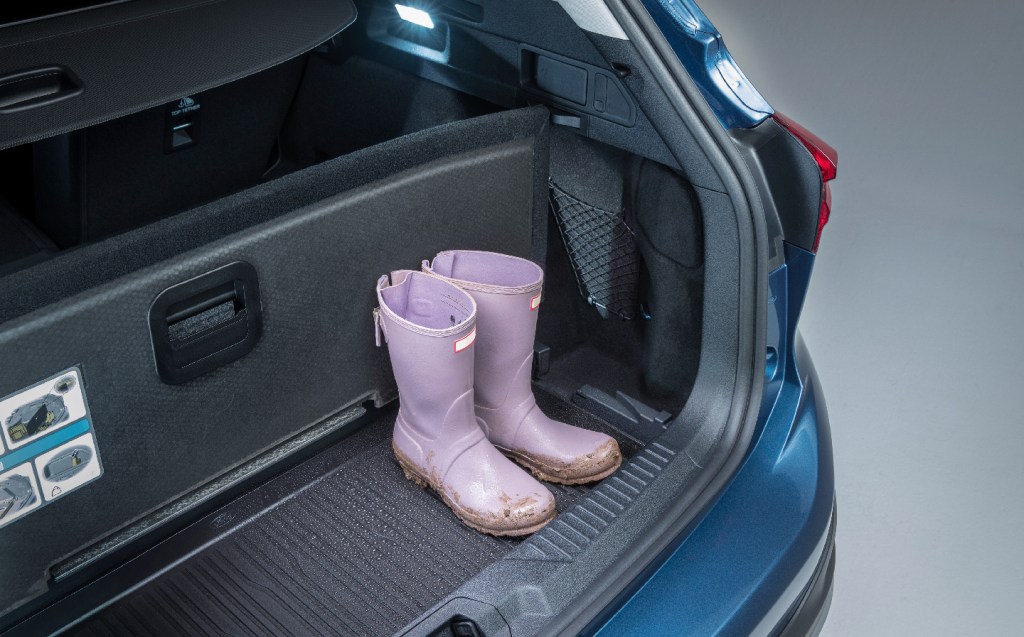
The Focus also has a sensible amount of rear space, with room for two adults to sit quite comfortably. Headroom and legroom are both sufficient, although a slightly larger alternative, such as the Skoda Octavia, will offer more passenger-carrying capability. Compared with closer rivals such as the VW Golf and Vauxhall Astra, however, the Focus scores solidly.
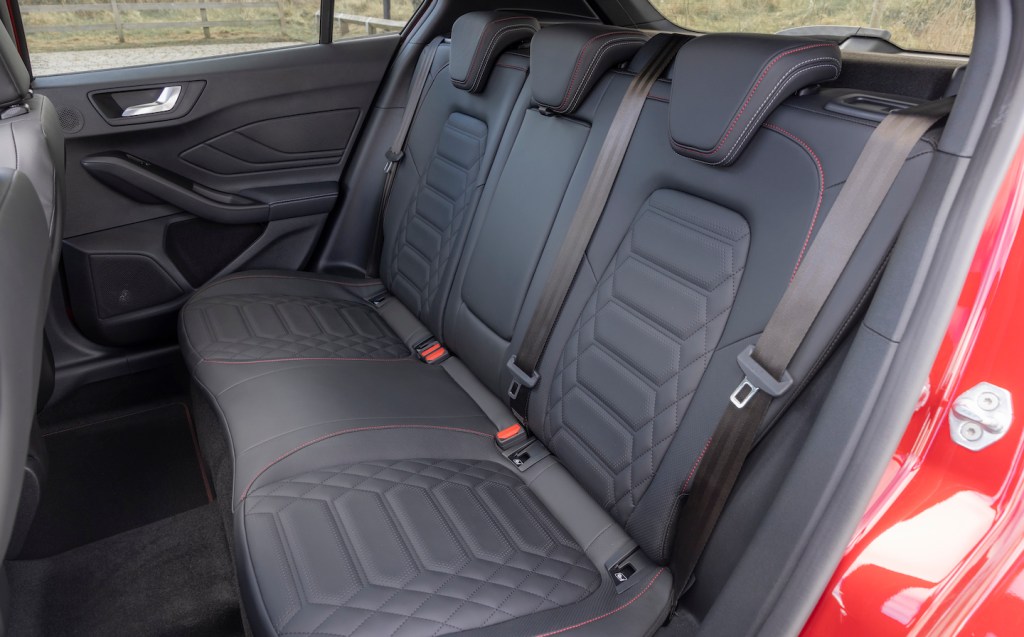
Infotainment
Arguably the biggest upgrade for the new Focus is its new touchscreen infotainment system, which is available on all but the entry level models. From corner to corner it measures 13.2in, and it dominates the dashboard to an almost comical extent. It sits above the air vents like an enormous wall-mounted television.
It uses the same operating system as the screen in the Mustang Mach-E electric SUV, though in landscape rather than portrait orientation, and with a different look. It’s considerably better than some of the old Ford operating systems, for instance in the speed with which it responds to your inputs; almost as sharp as the screen resolution. And there’s something both practical and stylish about its clean layout.
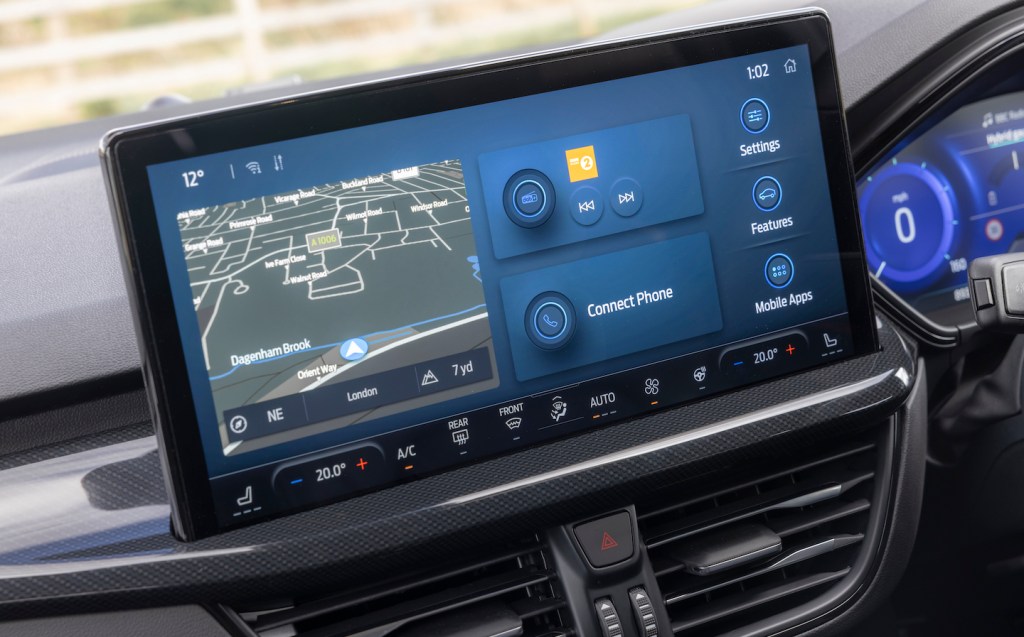
Ford has done away with the physical heater controls, instead choosing to integrate the climate control system into the infotainment screen. That would normally be a black mark against the Focus’ name, but the temperature controls are instantly accessible and easy to use. It isn’t perfect – we’d still rather have proper switchgear – but it is one of the more impressively integrated systems.
More luxurious versions also get a digital instrument display behind the steering wheel, providing clear readouts and an easy menu system so you can configure it the way you want. Admittedly, it isn’t as clever as the systems in the Seat Leon or Volkswagen Golf, but it works well and it’ll do the job nicely for most customers.
Performance, power output and acceleration
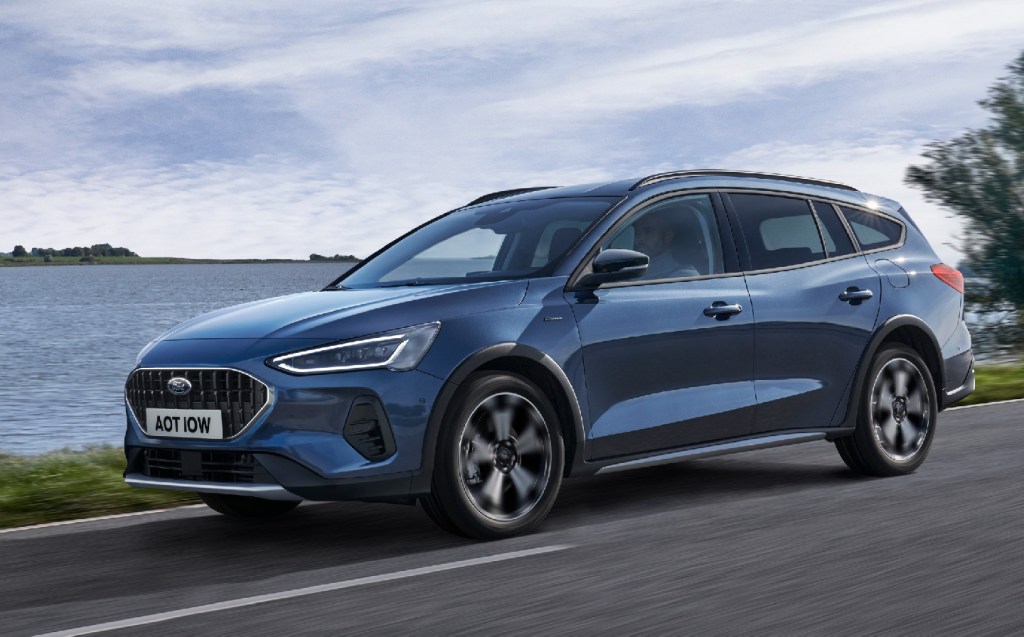
While Ford may have worked hard on the touchscreen and the exterior upgrades, it hasn’t done very much to the oily bits. You still get much the same choice of engines as before, with a selection of petrol and diesel powerplants to peruse. Some of the petrol engines use mild-hybrid technology to make them that little bit more efficient, but there’s no full hybrid, electric or plug-in hybrid option as yet.
For most customers, it’ll be a straight choice between one of the 1-litre EcoBoost petrol engines, with or without mild-hybrid tech, and the 1.5-litre diesel.
Power outputs range from the 118bhp of the diesel to the 153bhp of the most powerful 1-litre EcoBoost engine, although those who choose the more powerful ST models will get a 2.3-litre petrol engine with 276bhp.
No matter which version you choose – whether it’s a basic Trend model, a jacked-up Active version or a high-performance ST model – the power is always sent to the front wheels alone.
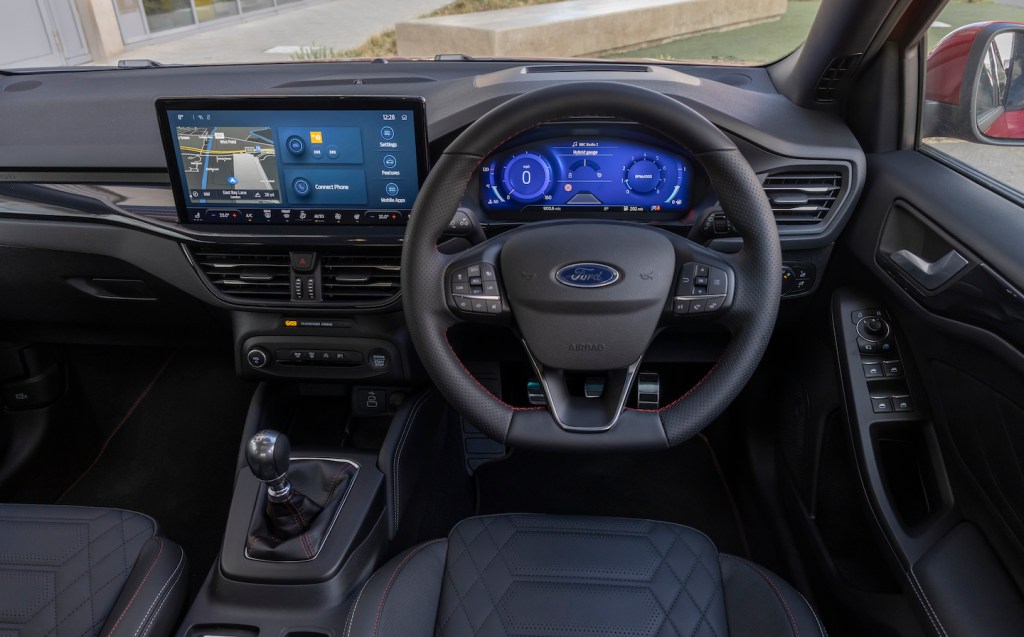
Our Ford Focus Active test car came with the 1-litre, 153bhp petrol engine – a three-cylinder turbocharged motor with mild-hybrid assistance and a six-speed manual gearbox.
As is so often the case with Ford, the manual transmission is a highlight, offering slick gear changes and a clutch that’s light, without being feather-light. Whether in traffic or on a good back road, it’s brilliant, and that makes the optional seven- and eight-speed automatic gearboxes feel a little redundant.
However, even with this relatively high-powered petrol engine on board, the Focus’ performance is nothing to write home about. A 0-62mph time of nine seconds is perfectly adequate but hardly exciting, and even the automatic version’s 8.4-second sprint is hardly stellar.
But then economy is a far more important consideration for most customers, and there the Focus performs admirably. The 1.5-litre diesel is the fuel consumption champ, achieving between 62.8 and 67.3mpg on the official economy test. But the petrol engines are hardly thirsty either, with all but the 2.3-litre examples achieving around 50mpg on the official test.
With automatic gearboxes as standard, however, the diesels represent good value compared with their petrol-powered equivalents.
Ride and handling
While our Active Vignale specification test car was perhaps the most compromised model in the range when it comes to handling and ride quality, there’s something to be said for testing the least road-orientated model.
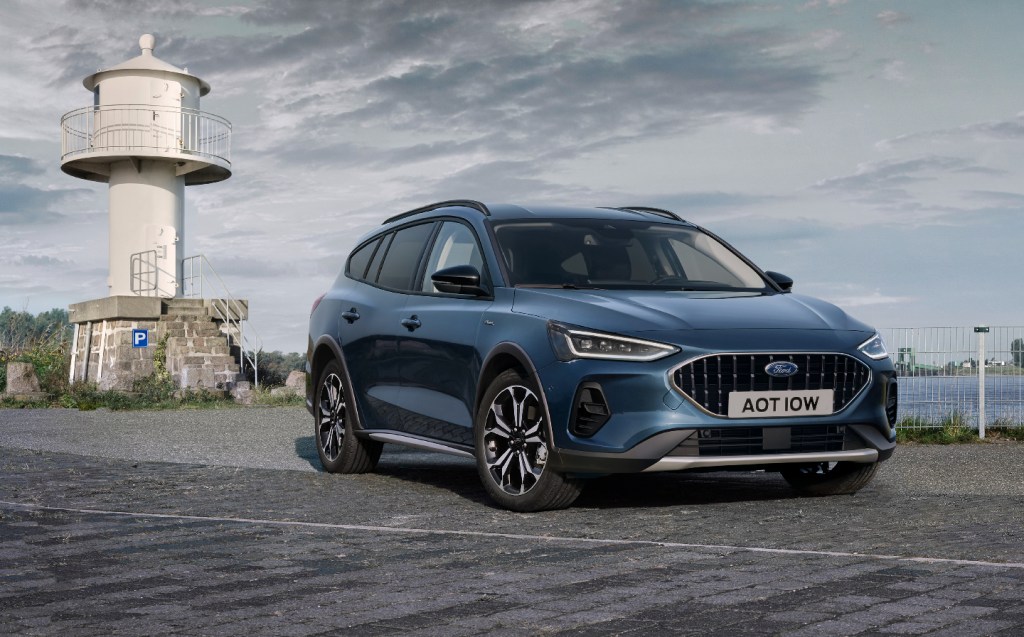
You see, the Focus has long been the gold standard when it comes to driver engagement, and although it has been challenged by the Mazda 3, it’s still up there with the best in class. If this Active model can keep up despite its jacked-up suspension, the other versions ought to be pretty special.
Happily, it is still great to drive, with sharp responses from the steering and bags of grip, although there is less feel through the steering wheel than we’d like. The body rolls quite a lot, too, which is undoubtedly a symptom of increased ride height, but the Focus is still no worse than most of its rivals.
That should bode well for other variants in the Focus line-up, but the suspension is less promising. Sometimes raised models such as this ride better than their lower-set siblings, sometimes they don’t. We can’t yet tell which camp the Focus Active falls into, but the ride is far from perfect.
It never feels unstable or jarring but it still feels a little stiff and unresponsive over potholes and broken surfaces – other hatchbacks in this class are noticeably more comfortable, including the VW Golf and the new Peugeot 308.
Again, though, there are promising signs when it comes to refinement, with the petrol engine of our test car proving quiet and economical, and while wind and road noise are noticeable, they aren’t too intrusive.
Pricing and on-sale date
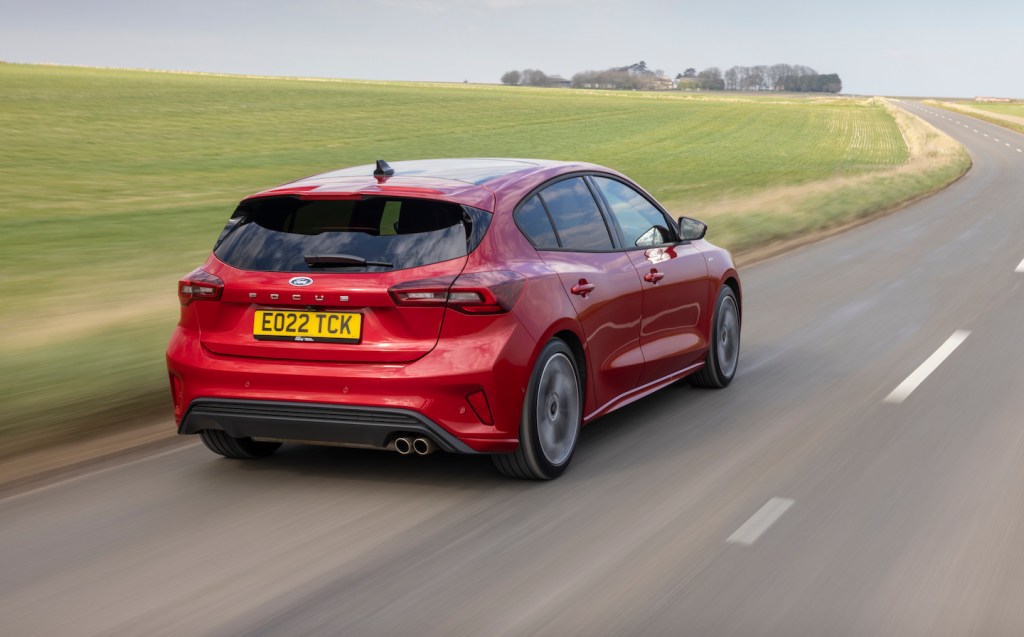
The Focus is on sale now in hatchback and estate forms, with prices starting at £23,500 for the basic Trend model. That car comes with LED headlights and the old eight-inch satellite navigation system, as well as a heated windscreen and parking sensors at the front and rear, but it also comes with 16-inch steel wheels, which might put some customers off.
Above Trend level, the range branches out into three different paths, with the more upmarket Titanium and Titanium Vignale models forming the first of these.
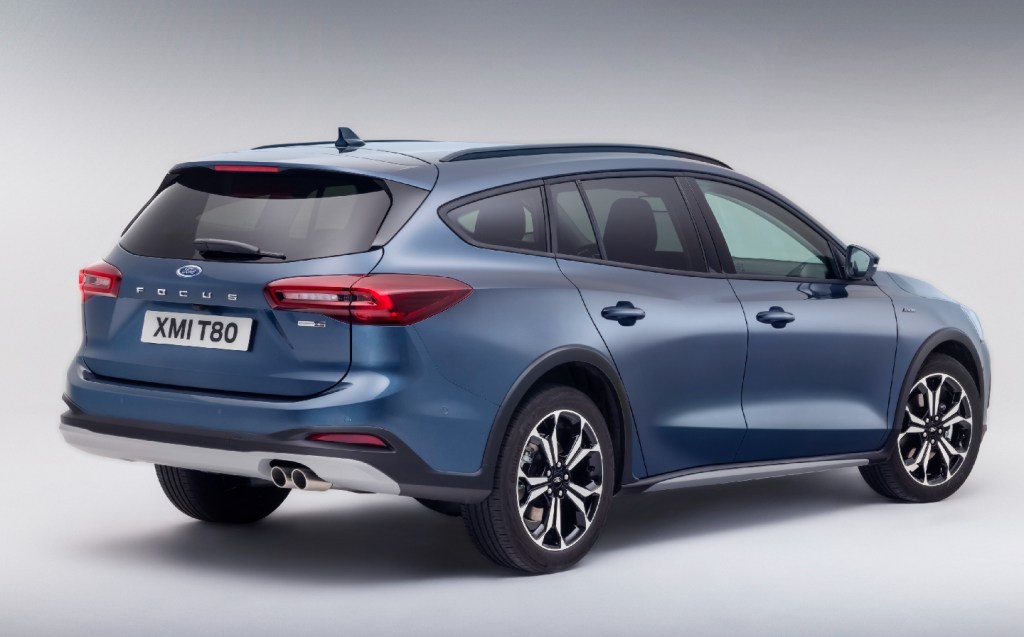
The other three pillars of the range are the rugged-looking Active and Active Vignale models and the sporty ST-Line and ST-Line Vignale versions, which sit on sports suspension. Those models get alloy wheels, two-zone climate control and the larger 13.2in touchscreen, while the Vignale models get a few other goodies. The ST version caps things off with its performance-orientated styling and equipment.
Verdict: Ford Focus Active review
The new Focus is not dramatically different from its predecessor but it has improved some of the old car’s weak spots. The new infotainment system is a massive step forward, and though we’re unsure about the grille, the new styling generally makes the updated car feel more modern.
And while the engines and driving experience are unchanged, they were the areas that needed least attention. Some of the old Focus compromises remain – the boot of the hatchback still isn’t especially big and the material quality is lacking in places – but it’s still a great family car that’s brilliant to drive.
This Active trim level is a little tricky to recommend because, apart from the elevated ride height (and the elevated price tag), it’s much the same as the standard car. Were all-wheel-drive an option, the story might be slightly different, but until such a feature arrives, the Active still lacks credibility for use on anything other than Tarmac.
Related articles
- After reading our review of the Ford Focus Active, you might like to read about the Vauxhall Astra Sports Tourer
- Also check out our review of the Nissan Qashqai ePower
- You might also want to see our review of the family-friendly Dacia Jogger
Latest articles
- Porsche 911 Carrera S 2025 review: Harder, better and faster – but is it the best 911?
- F1 2025 calendar and race reports: The new Formula One season as it happens
- Seven great automotive events to visit this summer, from F1 to art and champagne
- Watch new Porsche 911 GT3 smash Nürburgring record for manual cars
- Skoda Elroq 2025 review: Czech carmaker can’t seem to miss with its electric family cars
- Five best electric cars to buy in 2025
- Should I buy a diesel car in 2025?
- Zeekr 7X AWD 2025 review: A fast, spacious and high tech premium SUV — but someone call the chassis chief
- Denza Z9GT 2025 review: Flawed but sleek 1,062bhp shooting brake from BYD’s luxury arm


